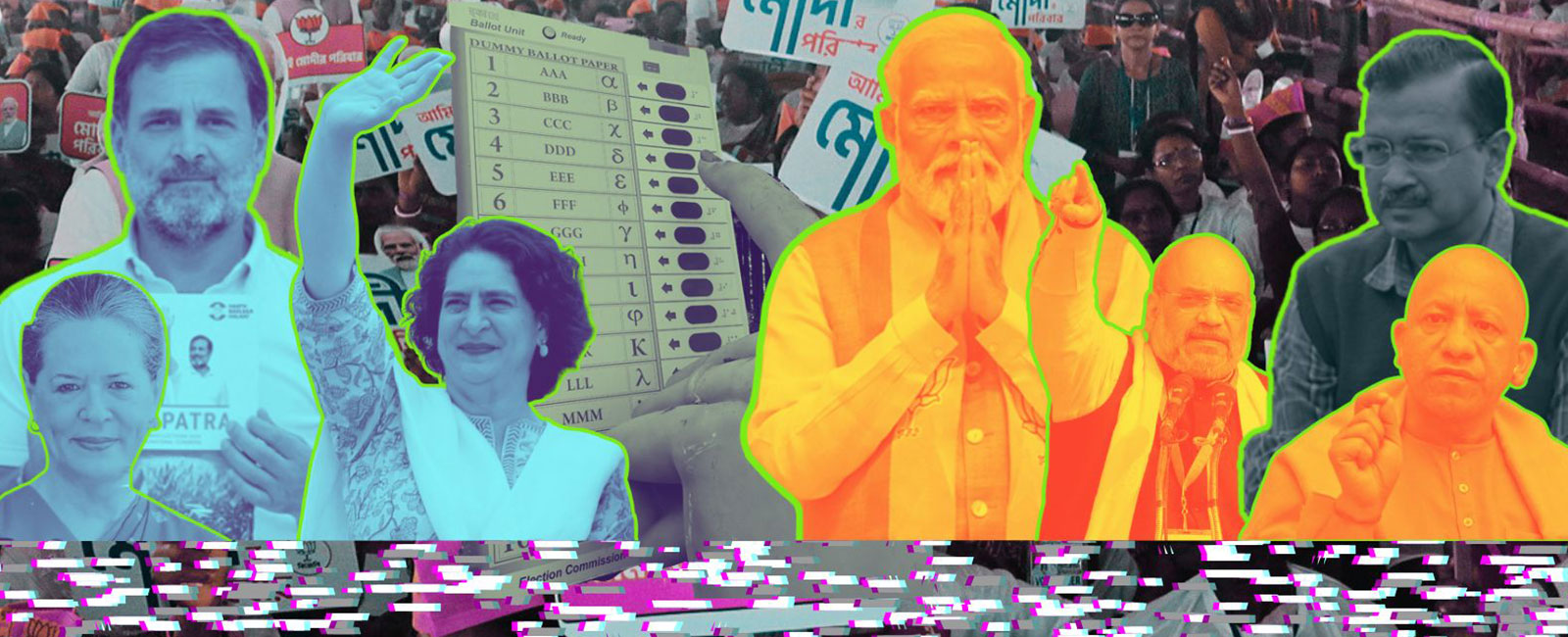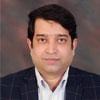India Election 2024: A look into world's biggest, costliest, and longest vote
With Modi sure of third term, opinion polls, which are mixed, predict another thrashing of the Congress-led alliance at the hands of the BJP

With nearly a billion voters — more than the combined population of its seven neighbours excluding China — India will vote in the world’s biggest electoral exercise held in seven phases across the South Asian country.
The conduct of elections in the most populous nation is a tremendous task and highly complex in terms of logistics as it will take almost more than a month to complete from the first day of polling on April 19 to the announcement of results on June 4.
The rightwing Bharatiya Janata Party (BJP) — led by Prime Minister Narendra Modi — is eyeing an absolute majority in Lok Sabha while its rival opposition alliance is yet to announce its candidate for the top slot.
Having sold tea at a railway station as a boy while his mother washed dishes to make ends meet, Modi who looks set to be only the second Indian to win three national elections in a row has come a long way from his humble beginnings.
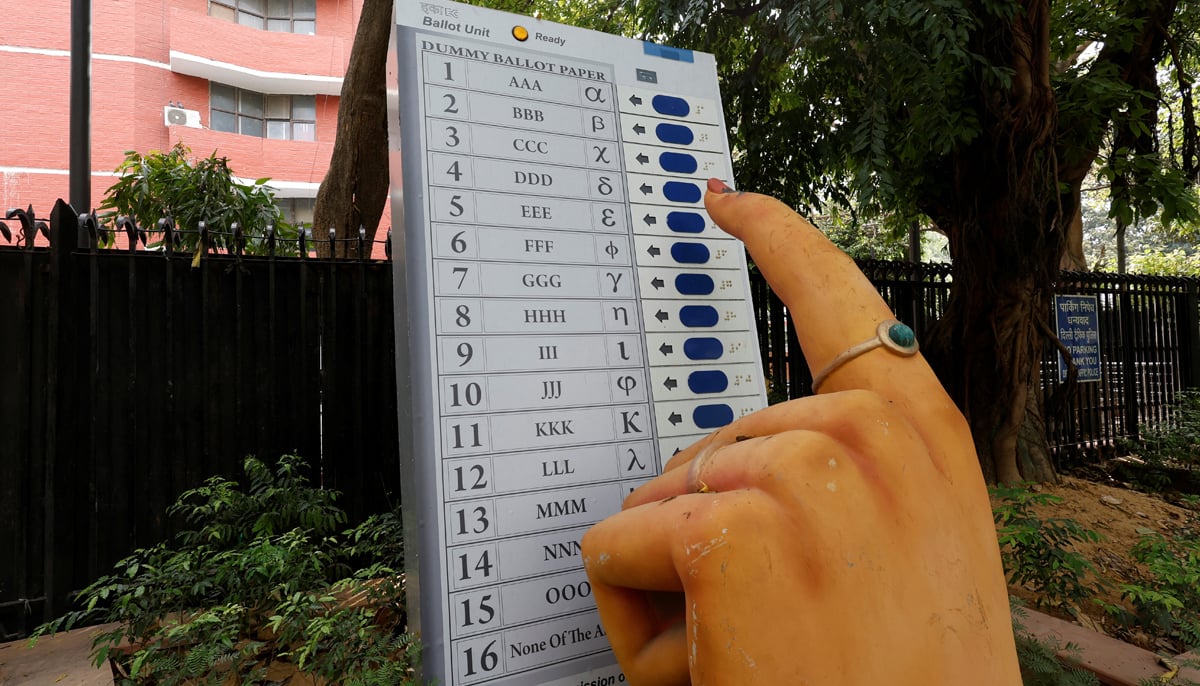
Opinion polls ahead of the election starting on April 19 predict he will even the three-term record of India's first prime minister, the Western-educated and wealthy Jawaharlal Nehru, who famously called India's independence in 1947 a "tryst with destiny".
Voters, expenses, and political parties
India, having a population of 1.417 billion, has about 968 million voters who will decide the future of Narendra Modi’s politics of polarisation — who has been ruling the country since 2014.
Due to the massive size of the electorate, the expenditure on the logistics involved billions of dollars to organise such a big exercise making it the world’s biggest and most expensive one.
In 2019, according to some estimates, political parties, candidates and regulatory bodies spent up to $8.6 billion and in the upcoming polls the total expense is expected to exceed this amount by a large margin.
In the first phase, 21 states will hold polling on April 19 and then 13 states will go to poll on the 26th in the second phase of this month.
Four out of seven phases of voting will be held on the 7th, 13th, 20th and 25th of May in 37 states while eight states will cast ballots on June 1st and the results will be announced on the 4th.
Election phases
| Phases | No of states | Poll dates |
| First | 21 | April 19 |
| Second | 13 | April 26 |
| Third | 12 | May 07 |
| Fourth | 10 | May 13 |
| Fifth | 08 | May 20 |
| Sixth | 07 | May 25 |
| Seventh | 08 | June 01 |
| Result announcement on June 04 | ||
In India, Uttar Pradesh — the biggest state with 240 million people — holds the same significance as Punjab for Pakistan with analysts saying “the way to Delhi is through UP” and that has been the case previously, as eight of India’s prime ministers trace their roots to the state.
The Election Commission of India (ECI) has set up nearly 1.5 million polling booths across the country with the one in Tashigang village in Himachal Pradesh being dubbed as the world's highest polling station at 15,256 feet.
Out of 968 million, 497 million voters are male and 471 million female with the young voters (20-29) being the largest group. The authorities have deployed 150 million polling and security staff and engaged 400,000 vehicles. Moreover, 5.5 million electronic voting machines (EVMs) will be used to cast votes.
According to ECI data, over 8,000 candidates contested the previous elections, while there are more than 2,700 political parties in the arena.
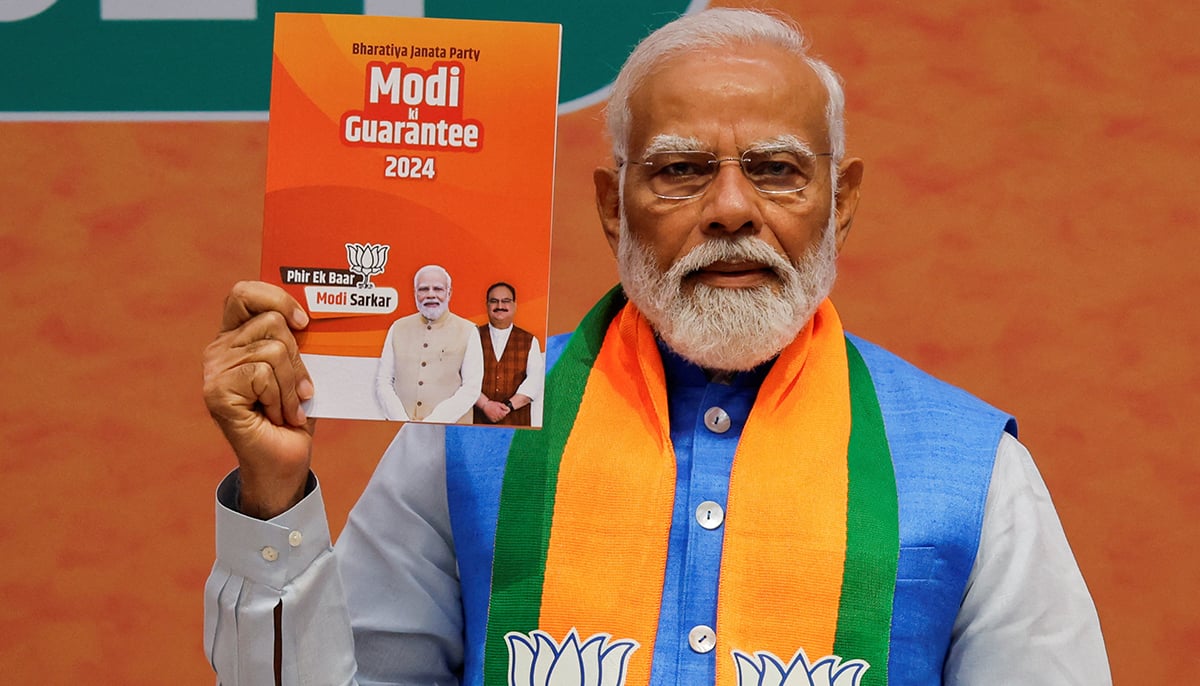
Who are the main candidates?
Modi headlines the race, followed by his de facto deputy Amit Shah and the main opposition face, Rahul Gandhi of the Indian National Congress. Gandhi's mother Sonia, the matriarch of the Nehru-Gandhi dynasty, is not contesting this time.
Key players
Modi is running for the third straight term to equal the record of India's first prime minister, Jawaharlal Nehru. Modi says another overwhelming victory for the National Democratic Alliance (NDA), led by the BJP, is crucial to meet his goal of lifting India to a developed economy by 2047 from middle-income levels. The world's fifth-largest economy has grown fast in the past few years and Modi has "guaranteed" to take it to the third position if he wins the election.
The BJP draws its support mainly from Hindus, who form 80% of the country's 1.42 billion people and for whom Modi earlier this year delivered on a key party promise of building a grand Hindu temple on a disputed site.
The opposition "INDIA" (Indian National Developmental Inclusive Alliance), largely a centre-left grouping of more than two dozen disparate parties, says a victory for it is essential to save the country's democratic and secular setup, lift its marginalised communities, raise crop prices for farmers and create jobs for its young. Opinion polls, which are mixed, predict another thrashing of the Congress-led alliance at the hands of the BJP.
‘Extremely significant’ for US, China
Michael Kugelman — an expert on Afghanistan, Pakistan and India and their relations with the US — shared his analysis about whether the Indian opposition parties will be able to trounce high-flying Modi.
He told Geo.tv that it’s hard to imagine any scenario under which the BJP doesn’t return to power.
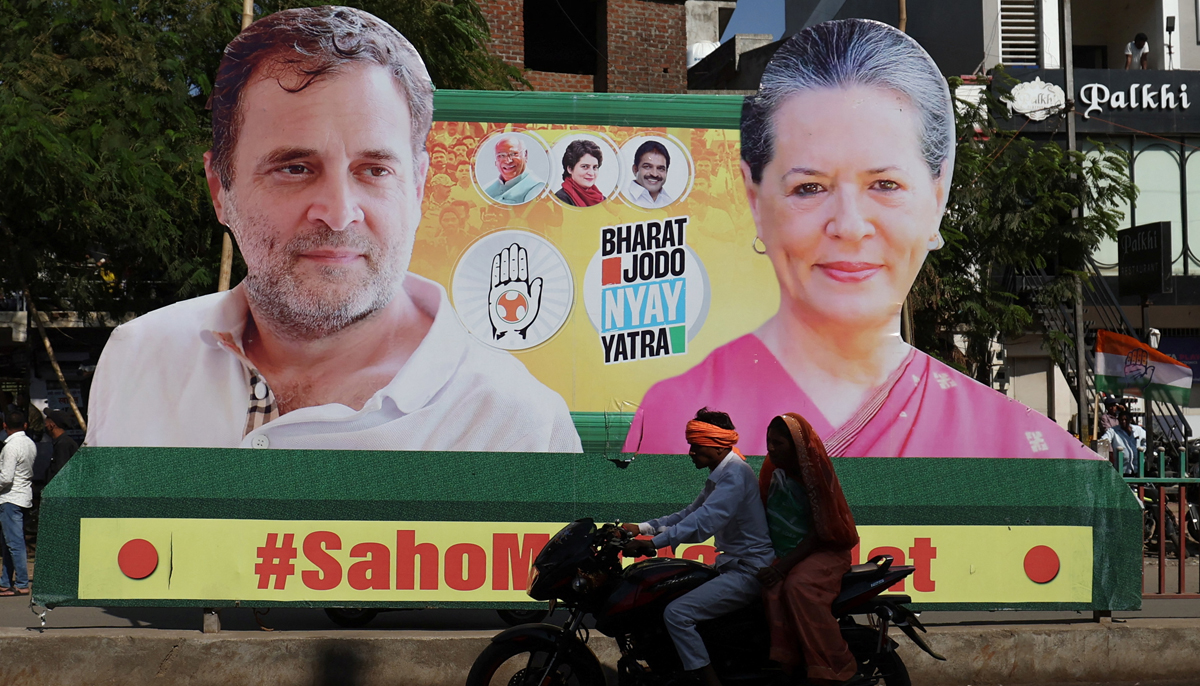
Despite being cautious about making electoral politics predictions, the leading specialist on South Asia was of the view that the simple combination of a wildly popular incumbent and a weak and divided opposition makes an upset highly unlikely.
Commenting on the significance of the election in India for world capitals like Washington and Beijing, Kugelman said: “The election is extremely significant, less because of the election itself — the outcome isn’t really in doubt — but more because of the country where it's happening.”
He maintained that India has become a key global power, the world’s most populous nation, and one of the world’s largest and fastest-growing economies. Therefore, he added: “What happens in India, including elections, matters for the world.”
Kugelman, who doesn’t see any improvement in India’s ties with Pakistan after the polls, also said that New Delhi wouldn't want the relations with Islamabad to deteriorate to avoid any foreign policy hassle due to its ongoing stand-off with Beijing.
“India won’t want ties with Pakistan getting worse — it doesn’t want another foreign policy headache at a moment when it’s grappling with the China challenge — but it’s quite clear that taking a softer line toward Pakistan doesn’t make sense for Hindu nationalism or BJP politics,” he said.
The expert believes that New Delhi, from a strict policy standpoint, will likely continue to insist that it won't engage seriously with Pakistan until the latter addresses "its anti-India terrorism problem".
“That’s a problem Pakistan claims doesn’t exist. Hence the likely continued paralysis in bilateral ties," Kugleman concluded.
Wasif Shakil is a staffer at Geo.tv
Graphics and visualisations by Afreen Mirza
Header and thumbnail illustration by Geo.tv



